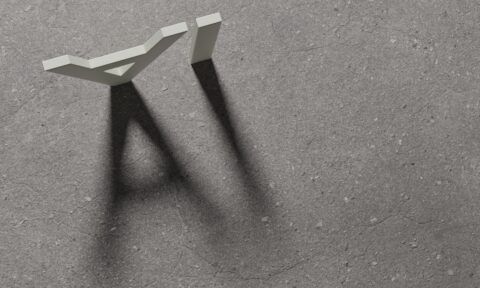Distortion Control in Ship Building
- Online course on Distortion Control in Ship Building for engineers and scientists.
- Innovative course with a balance of theory and practice.
- Designed for ship designers, shipbuilders, and personnel from ship management companies.
- Covers topics like welding techniques, residual stresses, and accuracy control.
- Led by experienced lecturers with expertise in welding and ship construction.
Overview
This course on Online Distortion Control in Ship Building is designed for engineers and scientists involved in ship design and construction. It covers topics such as welding techniques, residual stresses, and accuracy control in ship construction. The course aims to provide a balance of theory and practice for attendees from ship management companies, oil companies, classification societies, and ship builders. Lectures are delivered by experts in the field, focusing on welding distortion and mitigation techniques. The course spans two days and offers valuable insights for designing and managing various engineering structures.
Who should attend
Engineers, Scientists, Shipbuilders, Ship Management Personnel
Course Content
ABOUT THE COURSE
The syllabus will include: practical aspects of hull girder fabrication, such as sequence of welding, advanced welding methods and its advantages, accuracy control, etc, Also included topics like residual stresses in engineering components: types, causes, effects and estimation and overview of through thickness and near-surface residual stress in thick welded joints: some test cases and minimisation methods. Residual stress and hydrogen embrittlement in CSEF and dissimilar welds are also included.
Who Should Attend?
Engineers and scientists involved in the design of ships and ship systems. Personnel from ship management companies, oil companies, classification societies and ship builders will benefit from attending this course. The course is innovative in both content & structure with a careful balance of theory & practice. Design, assessment and management of a wide range of engineering structures will also benefit from this course.
PROGRAMME (All timings are in BST (GMT + 1))
Day 1:
09.00 – 10.30 Lecture 1: Advanced welding techniques EGW, FSW. Prof. N.R. Mandal
10.30 – 11.00 Break
11.00 – 12.30 Lecture 2: Electroslag welding and single side submerged arc welding with reusable backing strip. Prof. N.R. Mandal
12.30 -13.30 Lunch
13.30 – 15.00 Lecture3: Residual stresses in engineering components:
types, causes, effects and estimation. Dr M M Mohapatra
15.00 – 15.30 Break
15.30 – 17.00 Lecture 4: Overview of through thickness and near-surface
residual stress in thick welded joints: some test cases and minimisation methods.
Dr M M Mohapatra
Day 2
09.00 – 10.30 Lecture 5: Effect of welding sequence on structural distortion.
Prof. N.R. Mandal
10.30 – 11.00 Break
11.00 – 12.30 Lecture 6: Thermo-Mechanical Tensioning – an Active Buckling Mitigation Tool.
Prof. N.R. Mandal
12.30 – 13.30 Lunch
13.30 – 15.00 Lecture 7: Residual stress and hydrogen embrittlement in CSEF
and dissimilar welds Dr M M Mohapatra
15.00 – 15.30 Break
15.30 – 17.00 Lecture 8: Accuracy Control in Ship Construction. Prof. N.R. Mandall
CV’S OF LECTURERS:
Dr Manas Mohan Mohapatra
Dr Mohapatra is an associate professor at IIT,Bhubaneswar, India and did his PhD in Mechanical Engg. in 2008 from Indian Institute of Technology, Kharagpur. His research interests are:
Welding Residual Stress & Distortion control, Friction Stir Welding Tool Design, Friction Stir Processing and Friction Cladding, Thermal Spray and Laser Coating for Wear and High Temperature Applications, In-situ Metal Matrix Composites and their Manufacturability.
Dr Nisith Ranjan Mandal
Dr Nisith Ranjan Mandal was a Professor in the Department of Ocean Engineering and Naval Architecture, IIT Kharagpur. He had long teaching and research stint at IIT Kharagpur spanning from 1987 till 2017. He worked extensively in the area of welding distortion and its mitigation techniques in the background of ship and offshore structures. He taught primarily Marine Construction & Welding, Marine Design & Construction and Marine Maintenance & repair both in Undergrad and Graduate level.
Professor Mandal graduated from Indian Institute of Technology Kharagpur, B.Tech (Hons) in Naval Architecture in 1976. After spending three years (1976-79) as a Naval Architect in Garden Reach Shipbuilders and Engineers Ltd., Kolkata, he went abroad to pursue higher studies. He obtained his PhD from Technical University of Gdansk, Poland during 1979-85. Prior to joining IIT Kharagpur
in 1987, he worked as a lecturer at the Institute of Shipbuilding Technology, Goa.
He guided several PhD students apart from supervising numerous undergraduate and postgraduate students. He published more than eighty papers in peer reviewed journals and conferences and three books on Aluminum Welding, Welding Distortion and Ship Construction and Welding. He was also involved in several funded research and industrial consultancy projects, to name some of the major sponsoring agencies, Ministry of Earth Sciences, Garden Reach Shipbuilders and Engineers Ltd., Naval Research Board, Department of Science and Technology, Mazagon Dock Ltd., Cochin Shipyard Ltd. He has delivered lectures at various national and international meets as an invited speaker. Over these years at IIT Kharagpur, Prof Mandal conducted several short courses for professionals of various shipyards in India and abroad in the area of ship production and welding. He is Fellow of Institution of Engineers and Royal Institution of Naval Architects. Prof Mandal was honoured with grant of a fellowship by Royal Society of Edinburgh International Exchange Programme in 2008.
Duration: 2 Days
Cost:£595 + Vat



